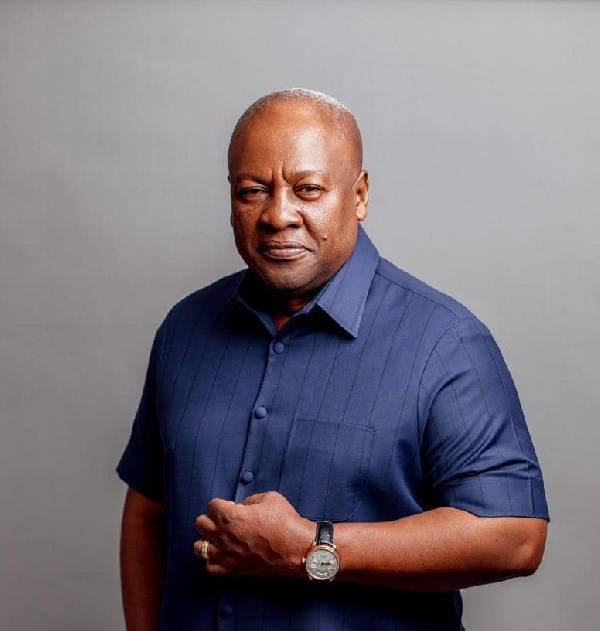
Beginning in 2026, the Government of Ghana will commence the construction of a 1,200-megawatt (MW) state-owned thermal power plant to offtake the additional 150 million standard cubic feet of gas per day from the Offshore Cape Three Points (OCTP) partners and the Ghana Gas Processing Plant 2 (GPP 2).
Upon completion, the project will be bigger than Akosombo Dam, which installed capacity is 1,020 MW.
The project, announced in the 2026 Budget and Economic Policy Statement, presented to Parliament by the Minister for Finance, Dr. Cassiel Ato Forson, on Thursday, November 2, 2025 is a central pillar of the government’s “Gas-to-Power Transformation Strategy” aimed at delivering reliable, affordable and cleaner energy for Ghana’s industrial and economic growth.
Dr. Ato Forson said the project would “support the provision of reliable and affordable power and secure Ghana’s energy future.”
The plant, which will be wholly owned by the state, will be powered by locally produced natural gas part of government’s long-term plan to reduce reliance on imported fuel and expensive light crude oil.
The initiative, part of Ghana’s shift to a more sustainable and self-reliant energy system, is expected to cut power generation costs by up to 75 per cent, while aligning with national climate goals.
Gas output from Ghana’s key oil fields is rising, with the Jubilee and TEN partners currently producing about 130 million standard cubic feet daily.
The OCTP partners will add another 150 million standard cubic feet per day, which the GPP 2 facility will process for power generation.
Reviving the Oil and Gas Sector
Ghana’s crude oil production has declined sharply in recent years from 71.4 million barrels in 2019 to an estimated 36 million barrels in 2025. To reverse this trend, President John Dramani Mahama’s administration has secured over US$3.5 billion in new investment commitments to revitalise the upstream petroleum sector.
The government has reached a US$2 billion framework agreement with Jubilee and TEN field operators to drill 20 new wells, and signed a US$1.5 billion memorandum of intent with the OCTP partners to expand production.
Global energy giant Shell has also shown interest in Ghana’s upstream sector, while the Ghana National Petroleum Corporation (GNPC) is expected to begin oil drilling in the offshore Voltain Basin in October 2026.
The Finance Minister said a new regulatory and fiscal framework is being developed to make Ghana’s petroleum regime “more competitive, transparent and stable.”
Expanding Electricity Access
Alongside the new power plant, government will launch the Rural Electricity Acceleration and Urban Intensification Initiative in 2026 to achieve universal access to electricity.
The programme will begin in the Volta, Oti, Savannah and Central Regions before expanding nationwide by 2029.
Through a turnkey model, unserved communities will be connected to the grid while off-grid solar systems will power remote areas.
The Minister said the initiative is a key part of the 24-Hour Economy Agenda, ensuring that “no Ghanaian is left without power.”
Government will also conduct feasibility studies for mini-hydro electric projects on the Red Volta and other river systems to diversify the power mix.
“These reforms from reviving the upstream oil and gas sector to building a national power plant and reforming the ECG will secure affordable and reliable energy for individuals and businesses,” Dr. Ato Forson noted.
Anchoring Growth on Fiscal Discipline
Beyond the energy sector, the 2026 Budget places strong emphasis on fiscal discipline, macroeconomic stability, and sustainable growth. The Minister announced that Ghana’s economy is projected to grow by 4.8 per cent in 2026, with non-oil GDP expected to expand by 4.9 per cent, driven by renewed investment in infrastructure, agriculture, and manufacturing.
Inflation is targeted to remain within eight per cent, while the fiscal deficit is projected at 2.2 per cent of GDP, consistent with the government’s commitment to maintain a primary surplus of 1.5 per cent.
Dr.Forson reported that Ghana’s public debt had dropped sharply from GH¢726.7 billion (61.8% of GDP) in 2024 to GH¢630.2 billion (45% of GDP) by October 2025, the lowest in a decade.
“For the first time in over ten years, Ghana has recorded a negative rate of debt accumulation,” he told Parliament, adding that all major international rating agencies—Fitch, Moody’s, and S&P had upgraded Ghana’s sovereign ratings, citing improved fiscal management and policy credibility.
Key Financial and Tax Reforms
In a major policy shift, the Finance Minister announced the abolition of the COVID-19 Health Recovery Levy, effective 2026. The levy’s removal, he said, will “put GH¢3.7 billion back into the pockets of individuals and businesses.”
The government also unveiled a comprehensive Value Added Tax (VAT) reform package to make the system fairer and simpler. The measures include: Reduction of the effective VAT rate from 21.9 per cent to 20 per cent; Abolition of VAT on mineral exploration and reconnaissance activities; Raising the VAT registration threshold from GH¢200,000 to GH¢750,000; and
Extension of the VAT zero-rating on locally manufactured textiles to 2028.The Minister explained that these reforms would reduce the cost of doing business by about 5 per cent and return nearly GH¢6 billion in savings to the private sector in 2026.
He also announced the establishment of a Value for Money Office (VfMO) to oversee all major public projects and ensure prudent spending.
The office will certify contracts, enforce cost benchmarks, and coordinate with the Auditor-General and Public Procurement Authority to curb waste. “This reform will save up to GH¢3 billion a year and rebuild public trust,” Dr. Ato Forson said.
Turning Stability into Prosperity
To sustain growth, government plans to invest GH¢57.5 billion in capital expenditure in 2026, its highest in years, with GH¢30 billion earmarked for road infrastructure under the Big Push Programme.
The Accra–Kumasi Expressway and the Adawso–Ekye Amanfrom Bridge are among the flagship projects expected to boost national connectivity and industrial growth.
The Minister said Ghana’s recovery has been “hard-won but real,” describing the 2026 Budget as a bridge from stability to transformation.
“We are not just keeping the lights on. We are lighting the path to industrial transformation, job creation, and inclusive prosperity,” he said.
The post Mahama To Build 2nd ‘Akosombo Dam’ appeared first on The Ghanaian Chronicle.
Read Full Story


















Facebook
Twitter
Pinterest
Instagram
Google+
YouTube
LinkedIn
RSS